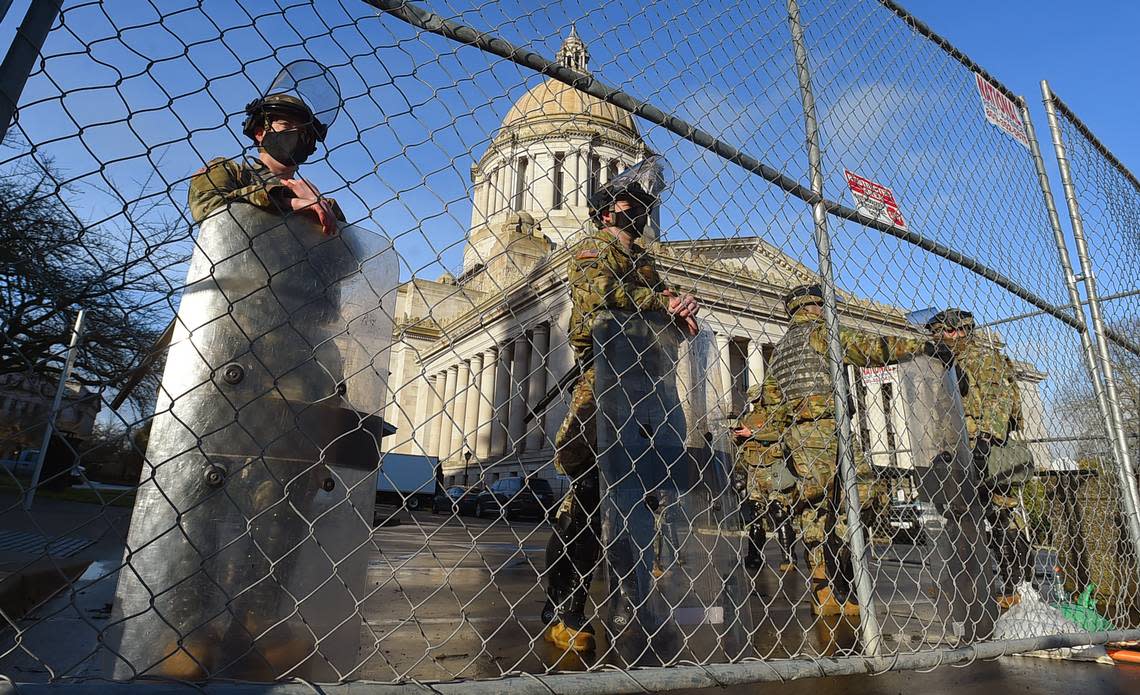Violent extremists are living among us | Opinion

There has always been a thread of insurrection among us.
America’s birth in revolution and the Civil War are the most well-known examples, but there has been a recurring pattern of often violent extremism.
In the late 19th century, socialists and anarchists rebelled against our capitalist system. The Pacific Northwest then saw many examples of social unrest among workers, and has since experienced other examples of political extremism from both the far left and far right.
On March 23, the Columbia Basin Badger Club will discuss violent extremists in our region in an online forum beginning at noon titled “Extremists in Our Midst.”
In the 19th and early 20th Centuries, waves of European immigrants — well versed in revolutionary political action in their native countries — found their way to the Northwest. The 1919 Seattle General Strike and violent confrontations in the 1920s and 1930s between workers with the Industrial Workers of the World (IWW) and other leftist labor unions ensued. Those movements precipitated the “First Red Scare” when 10,000 were arrested and more than 500 deported in the wake of bombings and strikes.
During the Great Depression, there was considerable support for both communist and fascist ideologies in America. That led to the “Second Red Scare” promulgated by Sen. Joseph McCarthy and his supporters against suspected communists (and against liberals and LGBTQ individuals) in the 1950s. Loyalty oaths were required of all government employees, and there were many abuses and assaults on individual civil liberties.
In recent decades, we have seen the rise of racially motivated and anti-government/anti-authority violent extremists. Many of these groups are in the Northwest. Major cities like Portland and Seattle have been rocked by violence from far-left and far-right extremists. Violent extremists from both ideological perspectives share a deep sense of grievance and persecution by the other. A very troublesome 2022 UC Davis poll found that one in five Americans believes political violence would be justified “at least sometimes.”
Many sociologists and community leaders believe the extremism we see today can lead to domestic terror among groups willing to harm or kill their political enemies. The threat is like an iceberg. There is much more there than is visible to the naked eye. It takes little provocation to inflame latent tensions, and once order collapses it is extremely difficult to restore.
The Badger Club forum will feature three speakers who make their living understanding and dealing with these issues.
Morgan Moon is an Investigative Researcher with the ADL Center on Extremism, where she monitors the white supremacist alt-right. At ADL, Morgan works to support law enforcement, the tech industry , and community partners on a range of extremist related issues, in addition to responding to media requests, providing congressional testimonies, and speaking at national conferences on the threats posed by extremism and antisemitism. Prior to joining ADL, Morgan received her master’s degree in security studies at the Edmund A. Walsh School of Foreign Services at Georgetown University with a concentration in Terrorism and Substate Violence.
Chris Sadlowski is the supervisory special agent in charge of the FBI’s Inland Northwest Joint Terrorism Taskforce based in Liberty Lake. He received a master’s in organizational leadership from Gonzaga University and holds a bachelors in computer information systems. In 2020, he reported to Kabul, Afghanistan, as the assistant legal attaché for criminal and counterterrorism matters.
Chris Guerrero is the chief of police in Kennewick. He has served his department in successively important capacities since joining the force in 1996. He graduated from Washington State University and the FBI National Academy.
You can register for this event, which will include a Q&A session, at columbiabasinbadgers.com to receive a confirmation and link to join the Zoom forum. Cost is $5 for nonmembers, while club members can join for free.
C. Mark Smith is chairman of the program committee for the Columbia Basin Badger Club. He spent 40 years managing economic development organizations at the federal, state, and local level and is the author of five books of history and biography.

